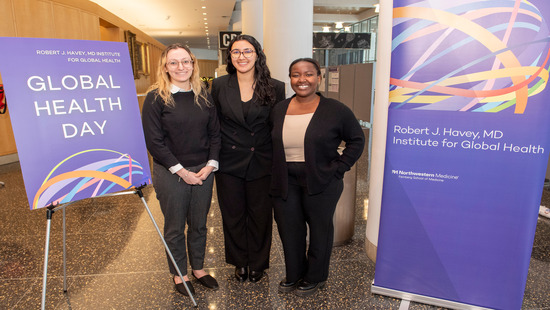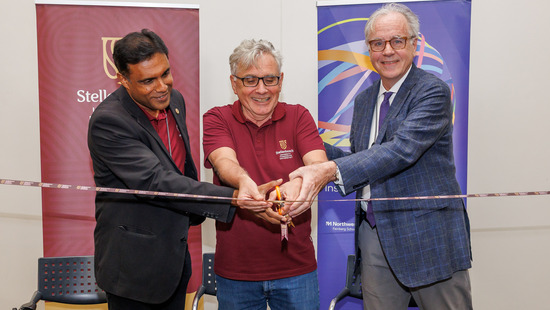Students Compete in Intramural Global Health Case Competition

At the Center for Pathogen Genomics and Microbial Evolution in the Robert J. Havey, MD Institute for Global Health, scientists are working to explore the spread of antimicrobial-resistant bacteria and fungi in a Pakistan health care system.
“Surveillance of antimicrobial-resistant Gram negative bacteria and fungi in a Pakistan health care system” is one project working to address this public health issue. The project is led by Egon Ozer, MD, PhD, director of the Center for Pathogen Genomics and Microbial Evolution and assistant professor of Medicine in the Department of Medicine, Division of Infectious Diseases.
Along with Ozer, other Northwestern researchers include Ramon Lorenzo-Redondo, PhD Judd Hultquist, PhD; Erica Hartmann, PhD; Charlesnika Evans, PhD, MPH and Lacy Simons. Researchers from the Ann & Robert H. Lurie Children's Hospital of Chicago including Mehreen Arshad, MBBS and Sameer Patel, MD, MPH also contribute to the study.
The team at Aga Khan University Hospital, the partner institute in Pakistan, is led by Rumina Hasan, MBBS, MSc, PhD; Zahra Hasan, PhD; Joveria Farooqi, MBBS; and Kausar Jabeen, MBBS.
Ozer and his team track the emergence and spread of serious fungal and bacterial infections in Pakistan that have become resistant to antibiotics and other medications that would normally be used as treatment. More specifically, this project builds capacity in Pakistan to use genetic sequencing of infections to better understand how they spread within the country, the region, and throughout the world.
“This approach is vital to block the spread of infections for which treatments may work poorly or not at all,” Ozer shares.

This work has already been instrumental in identifying a new fungal infection that causes serious blood infections - mostly in infants - throughout Pakistan.”
The team monitors serious infections in adults and children throughout Pakistan to understand rates of antibiotic resistance and the emergence of new kinds of difficult-to-treat infections. They also examine the genetic sequences of the organisms that cause these infections to track their spread within hospitals and across other regions.
“This work has already been instrumental in identifying a new fungal infection that causes serious blood infections - mostly in infants - throughout Pakistan,” Ozer shares.
In Karachi, Pakistan – a city with more than 20 million people - the Aga Khan University Hospital receives samples from dozens of hospitals and clinics throughout the city, as well as more than 300 testing sites throughout the entire country.
“This has allowed doctors and public health officials to coordinate responses to try to limit the spread of this infection,” Ozer says.
Judd Hultquist, PhD; Egon A. Ozer, MD, PhD; and Ramon Lorenzo-Redondo, PhD are members of the Robert J. Havey, MD Institute for Global Health and Northwestern University Clinical and Translational Sciences Institute (NUCATS). Ozer and Lorenzo Redondo are members of Institute for Public Health and Medicine (IPHAM).
To learn more about the Center for Pathogen Genomics and Microbial Evolution, visit their website.
For details on events, news, and funding opportunities, sign up for the Havey Institute for Global Health newsletter.

